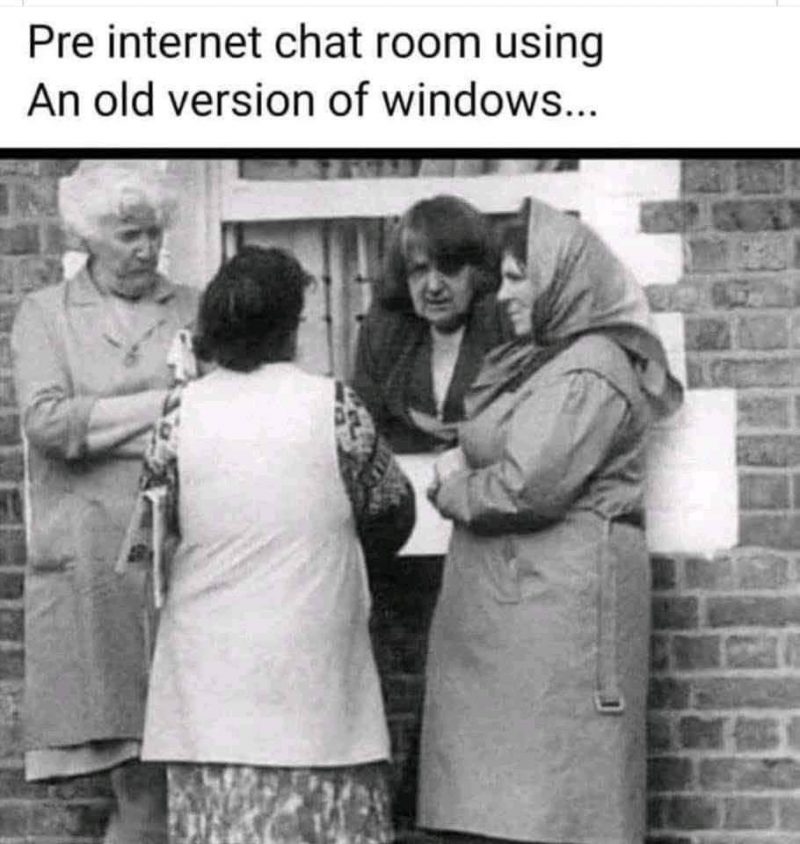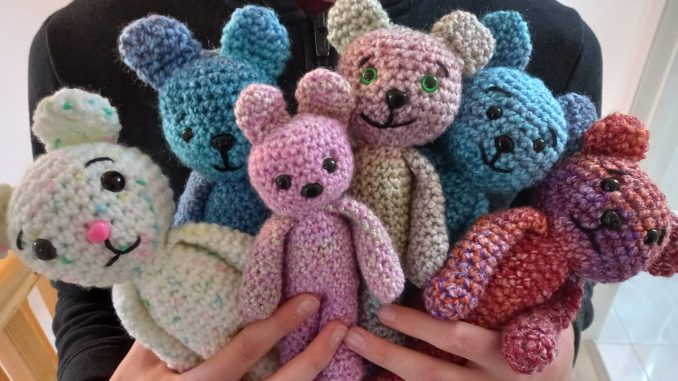
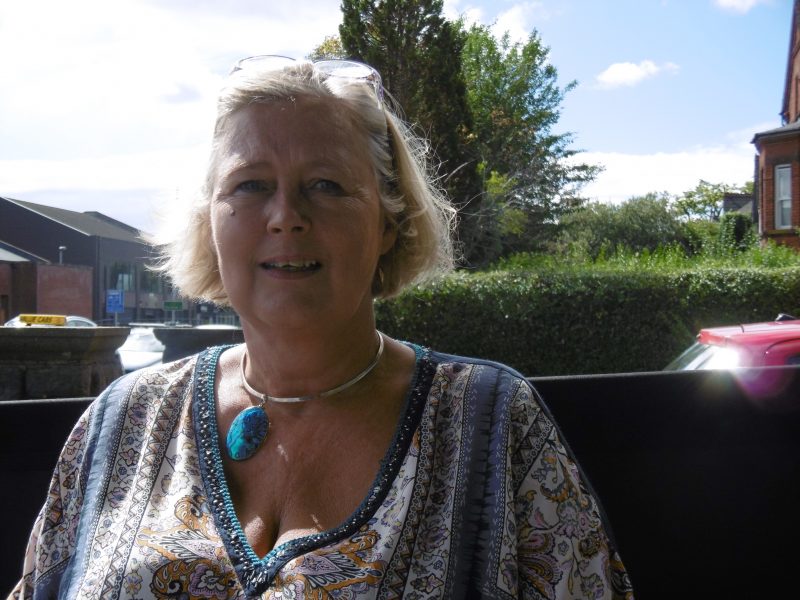
Privilege is an overworked word but I’m going to use it twice in one sentence. I was privileged to travel to Developing Countries with the charity Concern Worldwide, The Sudan, Rwanda and Bangladesh to write and film the emergency work going on there and I was privileged that my mentor was Linda McClelland. You may not have heard of Linda but she was a powerful woman who made a difference.
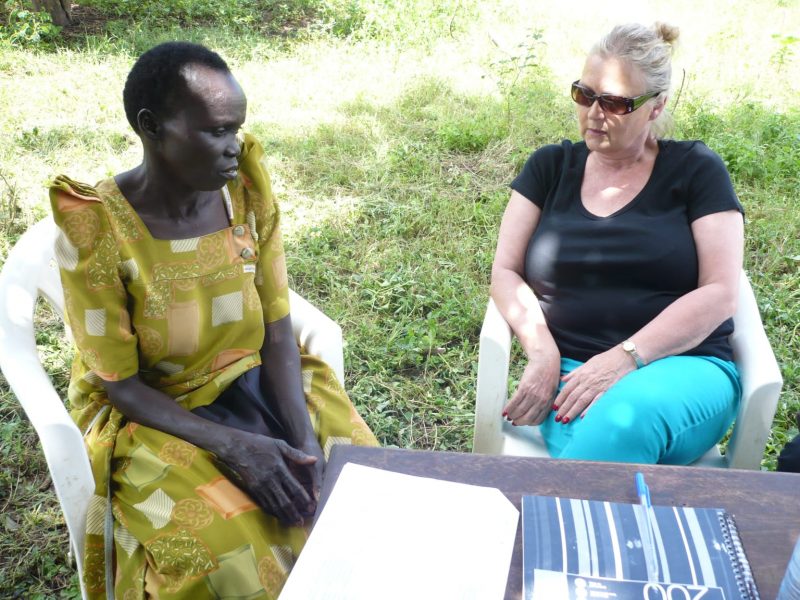
She died on Monday and tributes have poured in from round the world, especially from Uganda where she worked tirelessly for the people there. Esther Ainyo in Teso called her passionate, compassionate and empowering. The executive director of Soruda, an organisation she helped to build, sent thanks ‘for the contribution you made in transforming the vulnerable lives of communities in this world.’ A plaque on the wall of a school she supported bares her name, a tangible tribute for ever. To them all she was Mama Linda.
I first met this force of nature in the 80s when she worked for Concern. I heard her bubbly laughter sweeping down the stairs as I climbed to the top floor and as I walked into the Lisburn Road office she threw out her arms proclaiming ‘Hello darling!’ I knew I’d made a bright and beautiful friend for life indeed only last year we sealed our friendship at a ceremony in her back garden officiated by cousin Pat with flowers and wine and a lot of hysterical laughter.
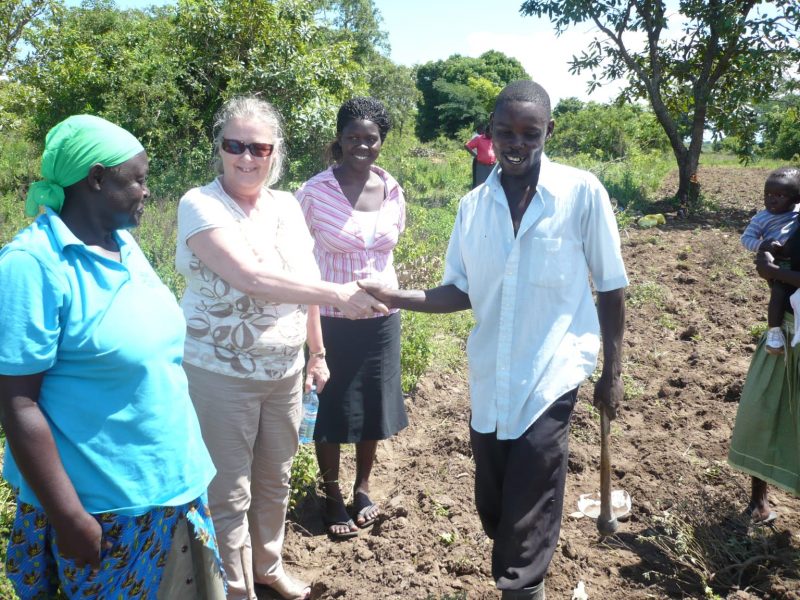
What a life. After Concern she was appointed chief executive with War On Want NI and so her love of Uganda began where war had brought so much devastation. She talked to me of her heartbreak seeing the poverty in all sections of society, the poorest to professionals all displaced and needing urgent help.
She spoke of one couple. “She a teacher and he a professor and they needed money for life saving drugs for their son. They’d sold everything even her wedding ring. Eventually he told his wife ‘Go down to the barracks and do what you have to do. With drugs he’ll have five years, without them our child will die in five days.’ She did sell her body and got enough money but although the child lived both she and her husband became infected with HIV.” She had similar stories from The Sudan where mothers had to sell one of their children to feed the rest of the family. What decisions to have to make.
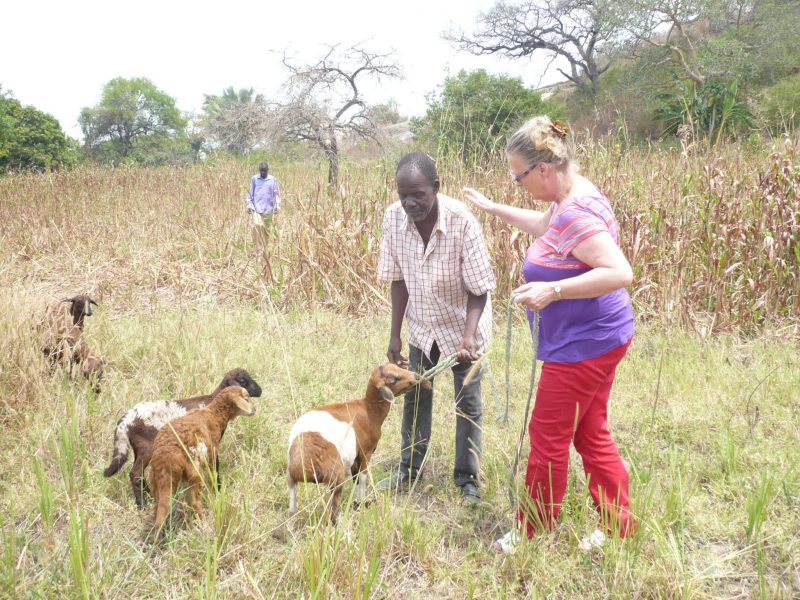
Linda was instrumental in dealing especially with widows and their children, in rags and bare feet, war weary and ill and treated like scum. With local help she taught the women how to keep bees and sell the honey, grow crops and market them, how to set up and manage bank accounts and take control of their lives. She soon realised the value of advocacy, dealing with government representatives, tribal chiefs and spreading the word at home through her all-Ireland inter-school debates.
She first heard about the ‘Third World’ at primary school when a member of Save the Children showed slides of the Korean Civil War. She was outraged and decided to dedicated her life to making a positive difference where she could. Born in Belfast, after boarding school in Dublin, she took up nursing in the Royal Victoria Hospital during The Troubles working with damaged and traumatised patients. She then worked with Save The Children, Concern and War on Want. On retirement she joined the board of Ballyhackamore Credit Union at the same time volunteering for the SOS bus helping those who needed support and understanding late at night often the worse for alcohol and drugs. I accompanied her one night, what she and the other volunteers had to deal with was an eye opener but she was never judgemental, she talked to the young people like a mum would speak to her child direct but with love, she offered comfort, a cup of tea, a pancake and a place of refuge until they could go home.
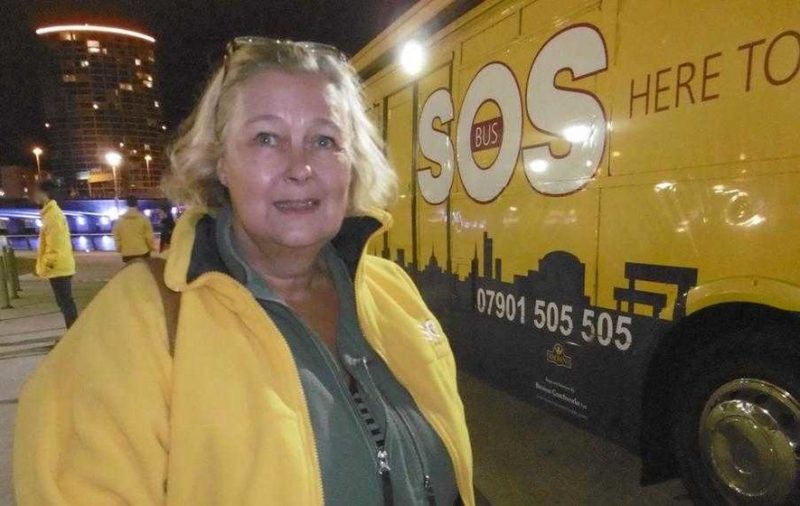
Our last joint venture was when we volunteered for Home Start, mainly befriending single parents with children, again she was thinking of those in need with never a thought for herself.
This was illustrated by Denny Elliott, Head of Self Help Africa, who went to Somalia as a Concern volunteer. “When I arrived teenagers were roaming the streets armed with Kalashnikovs. They started shooting just above our heads and I dropped to the ground terrified but Linda stood there and scolded them! She said: ‘Stop that immediately. I know you’re trying to frighten this young man but that’s enough, stop now.” And they did – that was my incredibly brave, dear charismatic friend.”
With deepest sympathies to her son Gavin and daughter Tanya and to all the thousands who loved her.
Traffic Jam To Be Proud Of
IF YOU think we’re all at sixes and sevens at the moment just think what it was like when Sweden switched it’s traffic from one side of the road to the other.
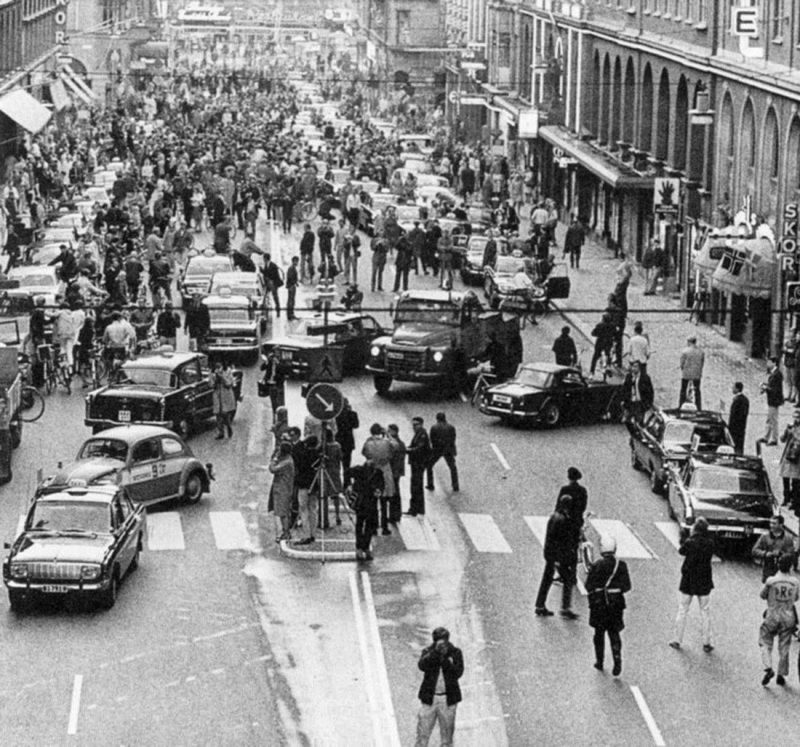
At 4.50 am September 3rd 1967 traffic came to a standstill, people gathered and history was made – motorists changed from driving on the left hand side of the road to the right despite 83% of the population opposed to the change. As the steering wheel was still on the left this lead to confusion and many accidents. Pedestrians following the habit of a lifetime were stepping off the pavement having looked the wrong way walking straight into the moving traffic.
Preparing the country for the change was a costly and complicated endeavor. Traffic lights had to be reversed, road signs changed, intersections redesigned, lines on the road repainted, buses modified, and bus stops moved. A massive PR campaign was conducted to reconcile the public to the change and educate them about how it would be implemented. apparently logos appeared on everything from milk cartons to underwear, and a song contest with the winning tune “Keep to the right, Svensson” — by The Telestars. Think of this next time you’re stuck on the Westlink.
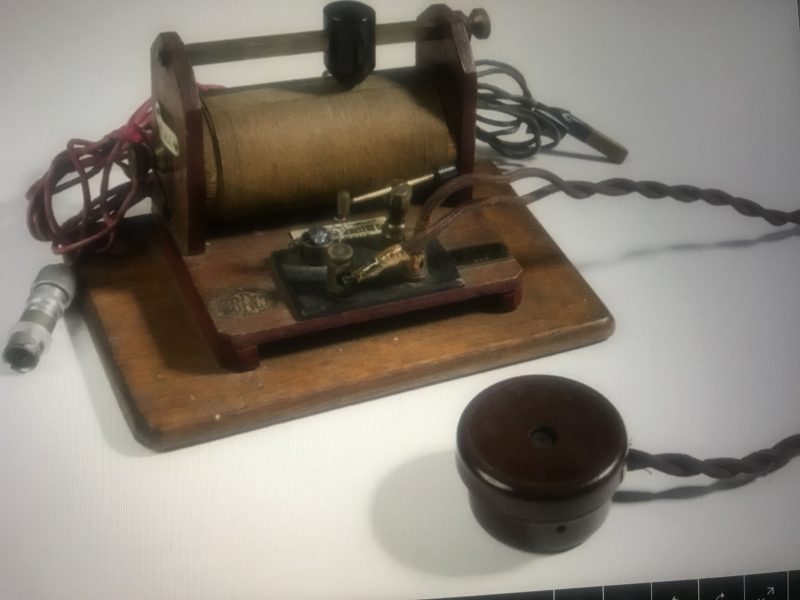
Spreading the News
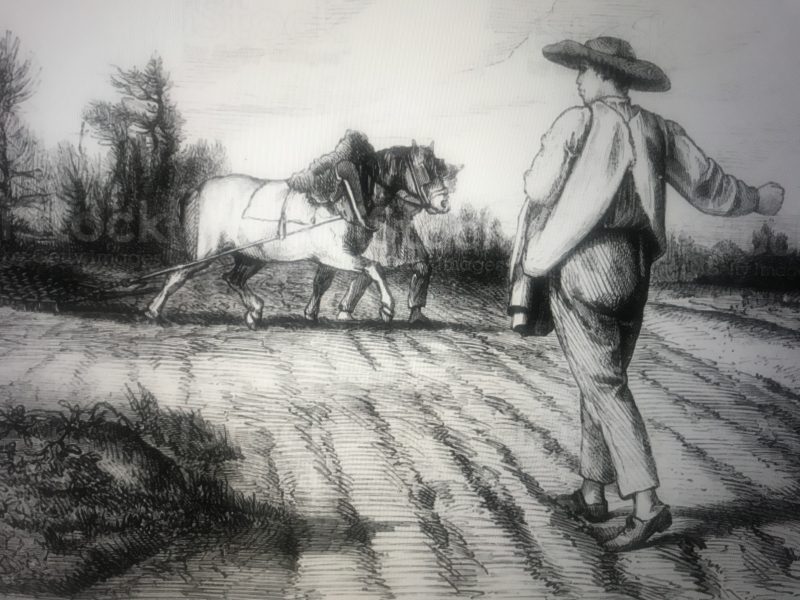
For generations farmers throughout Ireland sowed seed by hand scattering it from a bag slung over their shoulder. Then someone developed the ‘fiddle’ streamlining the job by using a contraption where a spinning disc, activated by a bow, would fling the seed outward from the shoulder bag. I have watched this in Donegal where farmers were spreading mainly grass and clover seed for cattle to graze in the summer and realised that both methods were casting the seed over a broad area. Then in the 1920s the agricultural term was transferred to radio and ‘broadcasting’ became what we know it as today, sending out the seeds of information far and wide,
Even the more modern term has changed. When it comes to radio we have progressed from the crystal set to the transistor to programmes on smart phone and on to the popular podcasts.

What is a podcast? It’s a new type of broadcasting, it’s been described as an audio newspaper, somewhere you can dip in and out and hear every subject under the sun being discussed, sometimes by experts and professionals, sometimes by interesting amateurs and sometimes by people who are fulfilling a vanity project. These podcasts don’t last and soon go ‘off air’!
I get a bit frightened with terminology, for instance does subscribe mean paying money? No. In this case it means you are a regular listener perhaps to BBC podcasts where there are hundreds of subjects to choose from on Sounds network. One of the most relative at the moment is Martin Lewis Podcast dealing with the economy, It’s worth listening to some of these before planning your own podcast just to get an idea of format.
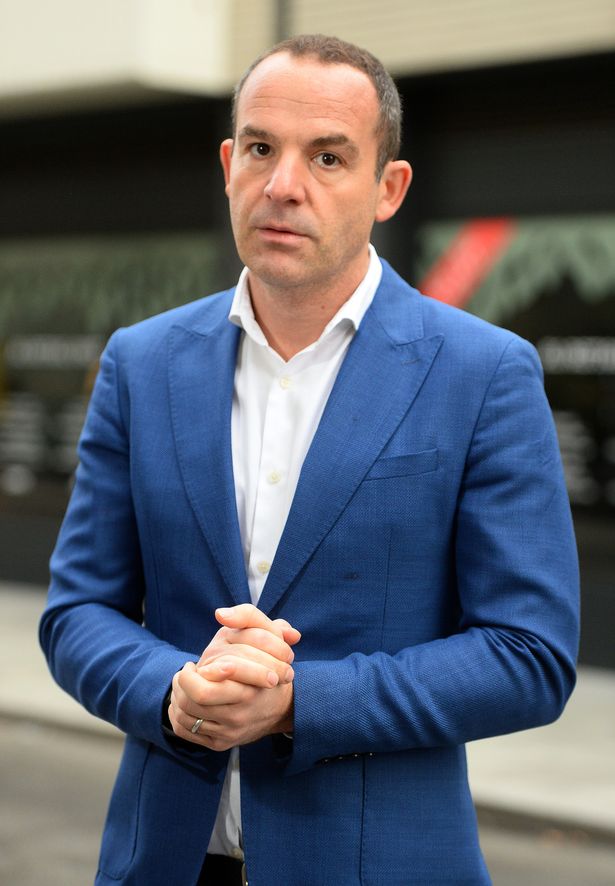
Derek West runs JohnsonWest Co, a production company which specialises in all thing media be it video tours for estate agents, advertising, event management or print and publications but they also work with people wanting to advertise themselves on a podcast. He reckons these are like like books in a a bookshop where you can browse, then select and open it up to enjoy the contents.
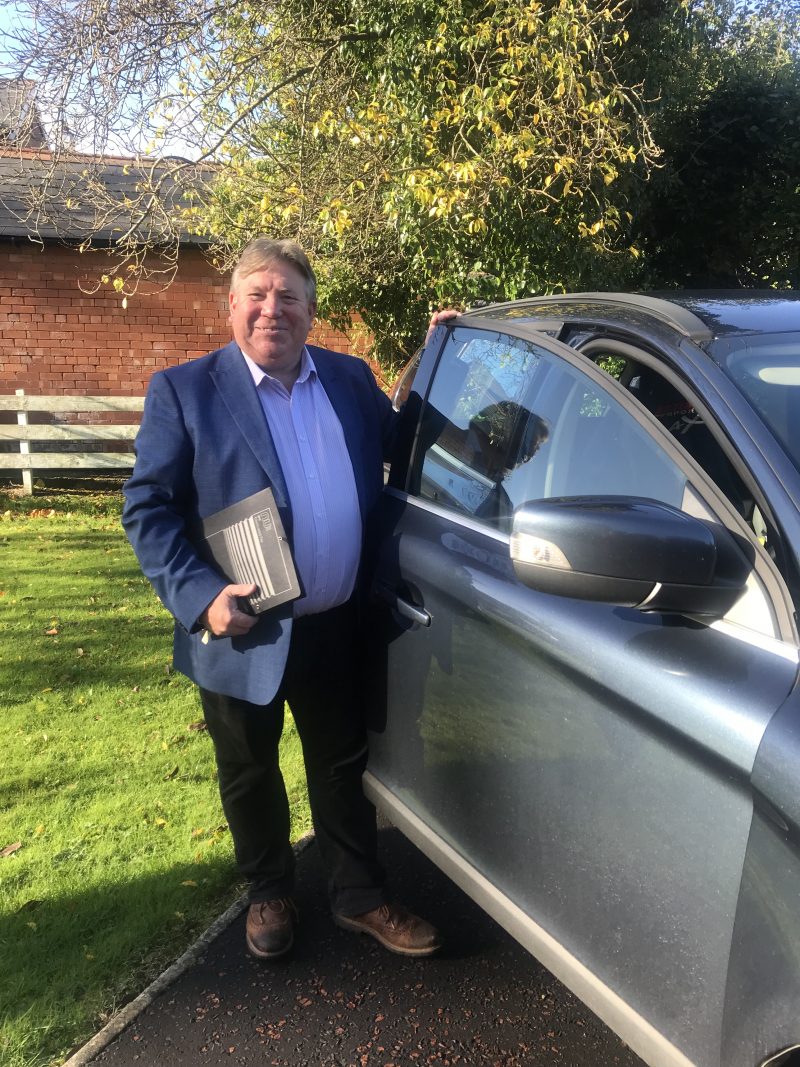
Become A Podcaster
He then explained with personal podcasts, where people like you and me can make a programme and stream it on a specific platform, there usually is no charge to the listener. The most basic way to record your podcast on a smart phone but quality isn’t always perfect, best quality is attained using a computer or setting up your own simple sound studio. When downloading and editing you do need a rough knowledge of the technology or a grandson! Or get professional help, like all things there are quite a few easy to follow sites to consult on the Internet.
Derek and his partner David Johnson work with organisations, companies and individuals who favour podcasting, one such is Vine to Dine where local sommelier David Burke gives regular advice on matching food with the perfect wine, so choosing your subject is important, grab the listener in the first few sentences, know what you’re talking about and you’ll keep them hooked. Subjects could be anything from fashion to fishing, gardening to cooking, even politics! It might be you on your own talking directly to your listener, or working with a co-host to chat ‘on air’, some light hearted banter is a good idea, or perhaps a serious discussion involving one or two others who have knowledge of your subject. You can say what you like up to a point, no one regulates podcasting but it’s not entirely free speech, absolutely nothing racist must be included nor hate speech, you can express an option but be careful that you don’t libel someone on this public platform or you could be breaking the law and end up in big trouble.
Derek explained that most podcasts last around 30 minutes especially if you do invite others to join you in your ‘studio’ – as quiet a room as you can find with no traffic thundering past the window or children playing in the next room! If writing a script allow around 4500 words to fill the time, don’t rush your speech and make sure you talk in pictures to allow the listener to visualise what your are talking about.
If you consult a company such as Derek’s they will talk through what you want to do, check copyright where necessary, provide voice- over artists from a stable of well known professional broadcasters, make your recording, add music and edit and send it on it’s way to the listener. The only way you can make money is though sponsorship, if you can prove you have something like 5000 listeners a month then you can go to a supplier or an interested party and gain their support. That mainly applies to people selling a product, however, if you are so fascinating that hundreds of people want to tune in on a regular basis to listen to your dulcet tones and like the content, sponsorship is a possibility.
Podcasting is the New Radio on Demand.
Here you can express your own personality and interests. There are no auditions, no interview process to go through, as Derek says, the worst that can happen is no one listens.
At the moment this creative couple are completing a virtual town tour video of Holywood, the first town in the UK to produce such a cutting edge programme. It’s for Holywood Chamber of Commerce to sell the attractions of the town for both commercial ventures and tourism. With a portable studio, cameras and drone technology this is the most ambitious project Derek and David have undertaken in the 18 months their company has been running. Both men have worked in the media for years, Q Radio, City Beat, U105, Downtown, Cool Fm and Ulster Television so they have all the experience at their fingertips and when it comes to podcasting this is something they feel has a big future.
More at www.johnsonwestco.com
